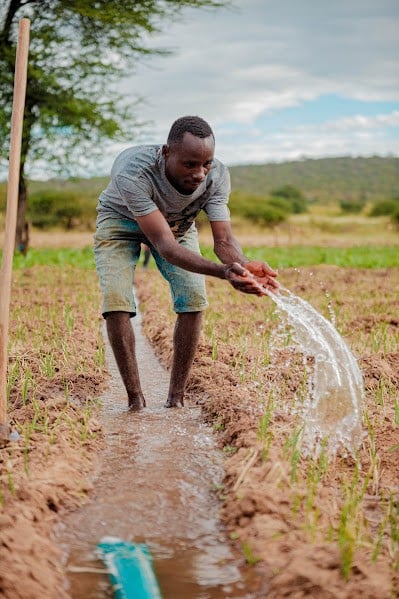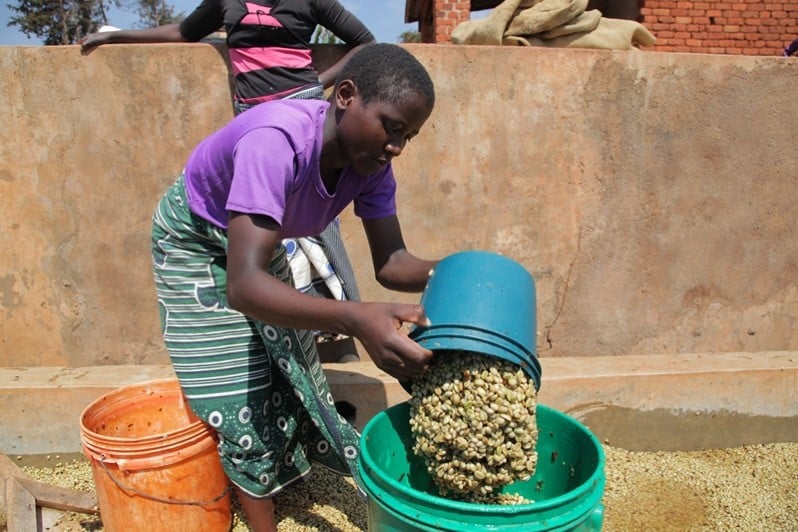Farmers are the backbone of our economy, are we doing enough to boost their growth?
By Samora Lupalla, Private Sector Engagement and SME Finance Development Manager, at the Financial Sector Deepening Tanzania (FSDT)
Tanzania’s farmers need appropriate and affordable loans so that they can invest in buying quality seeds, fertilizer, and pesticides to boost harvests, and possibly build production infrastructure, such as Agri-processing facilities to add value to the crops they produce. This would greatly improve the ability of farmers to earn more and increase their contribution to the economy.
FinScope Tanzania 2023 confirms that primary farming and fishing remain the main source of income for 9.5 million Tanzanians – that’s almost 30% of adults. Yet, only 14.9% of credit awarded to the private sector went to agriculture, according to the July Monthly Economic Review by Bank of Tanzania. Agricultural access to credit may be in line with that of Tanzanians overall, but the fact that agriculture contributes about 28% to the Tanzanian economy and 24% to export earnings should be impetus for banks to want to encourage borrowing for growth.
When incomes rise, lives are improved and this could have a profound impact on quality of life for those living in the rural areas, such as farmers. Most of the people who are financially excluded, and farming can barely produce enough to feed themselves and their families.
Financial service providers (FSPs) can help farmers transform their lives. Most FSPs offer short-term loans, but these cannot cover investment in production infrastructure which requires mid to long-term loan finance. Farmers, and the economy, would benefit enormously from loans that could cover the purchase of mechanised equipment, provide working capital, and potentially finance the building of small Agri-processing plants.
Developing alternative credit scoring

While financial inclusion in Tanzania has increased considerably over the last five years, the people who remain left behind are more likely to live in rural areas (77% of the excluded) and depend on farming and fishing as their key sources of income (26% of the excluded), according to the recently published FinScope Tanzania 2023 report.
The reasons for this continued exclusion include the fact that very few people in Tanzania have title deeds to their land and therefore cannot meet banks’ requirements to use land as collateral for loans. This is even worse for women farmers, who traditionally have not been able to own land until recently. Another obstacle is that youth under the age of 18 do not have national identification numbers and are therefore failing to meet banks’ “Know-Your-Customer” (KYC) requirements.
FSDT is eager to work with financial service providers (FSPs) to find ways to overcome these obstacles to loan financing for farmers and help develop products that can serve millions of Tanzanians. This would contribute significantly to the goals of the Financial Sector Development Master Plan 2020/21 – 2029/30, that aims to develop a more resilient, competitive, and dynamic financial system in Tanzania.
FSDT is already beginning to see an eagerness within the financial sector to tackle the challenges faced by farmers. We are currently working with several partners to find an alternative to typical KYC requirements. Together with our partners, we are looking to develop an industry alternative credit scoring model for farmers, as well as micro-, small- and medium-sized business.
This model would use alternative data covering KYC, payments, geospatial, agronomy from farmers organized in AMCOS, FSPs, off takers, data from Credit Reference Bureaus (CRBs) and other stakeholders. From this data, we could develop industry credit scorecards that will unlock financial services for the largely underserved, especially women and youth smallholder farmers. The model is being piloted in Kilombero with sugarcane farmers and we intend to scale it up to other value chains.
Farmers need finance to add value
It is not only quality inputs that are crucial for farmers to grow better harvests. They need financial support throughout the farming process – from ploughing land and sowing seeds, to harvesting and selling crops, sometimes in markets long distances away.
Lack of access to affordable credit prevents these farmers from hiring the additional labor they need or leasing tractors and other machinery to help them with crop planting, cultivation, harvesting and transport. Having access to capital would also enable them, to hire labor, purchase machinery to add value to their crops so that they are able to increase the amount they receive for their efforts.

For instance, tractors would allow farmers to cultivate larger land areas and so increase their yields. Mechanized equipment can also add value in such a way that they can reduce their losses. A good example of this is when it comes to transporting fruits such as tomatoes, which are easily damaged, over long distances leads to waste. If farmers had the machinery to turn tomatoes into tomato pulp and transport it, then they would be able to mitigate the loss and earn more as well.
According to a March 2023 research report by the Institute for Sustainable Food at the University of Sheffield, the crop loss in tomatoes in Tanzania due to delayed harvesting is almost 57% and the damage when harvesting is more than 55%.
Improvements in developing products and services for farmers are happening, but more needs to be done to gather data and information on exactly what farmers of different crop value chains require and what they could achieve with more considerately tailored loans.
As a market facilitator, FSDT advocates for the development of evidence-based financial solutions to address the challenges highlighted above. To do so, FSDT supports FSPs by conducting research such as FinScope Tanzania 2023, which is also being customized to focus on specific industries in the financial sector to provide FSPs with a better understanding of farmers and their specific needs. Financial services and products are not a one-size-fits all.
In conclusion, FSDT is looking forward to working with the right financial sector market players to create an enabling environment for farmers to grow and contribute even more to the economy of the country. A better future for farmers is a better future for the nation.
For more updates on financial inclusion initiatives in the country and how you can play a role, subscribe now to our newsletter.

